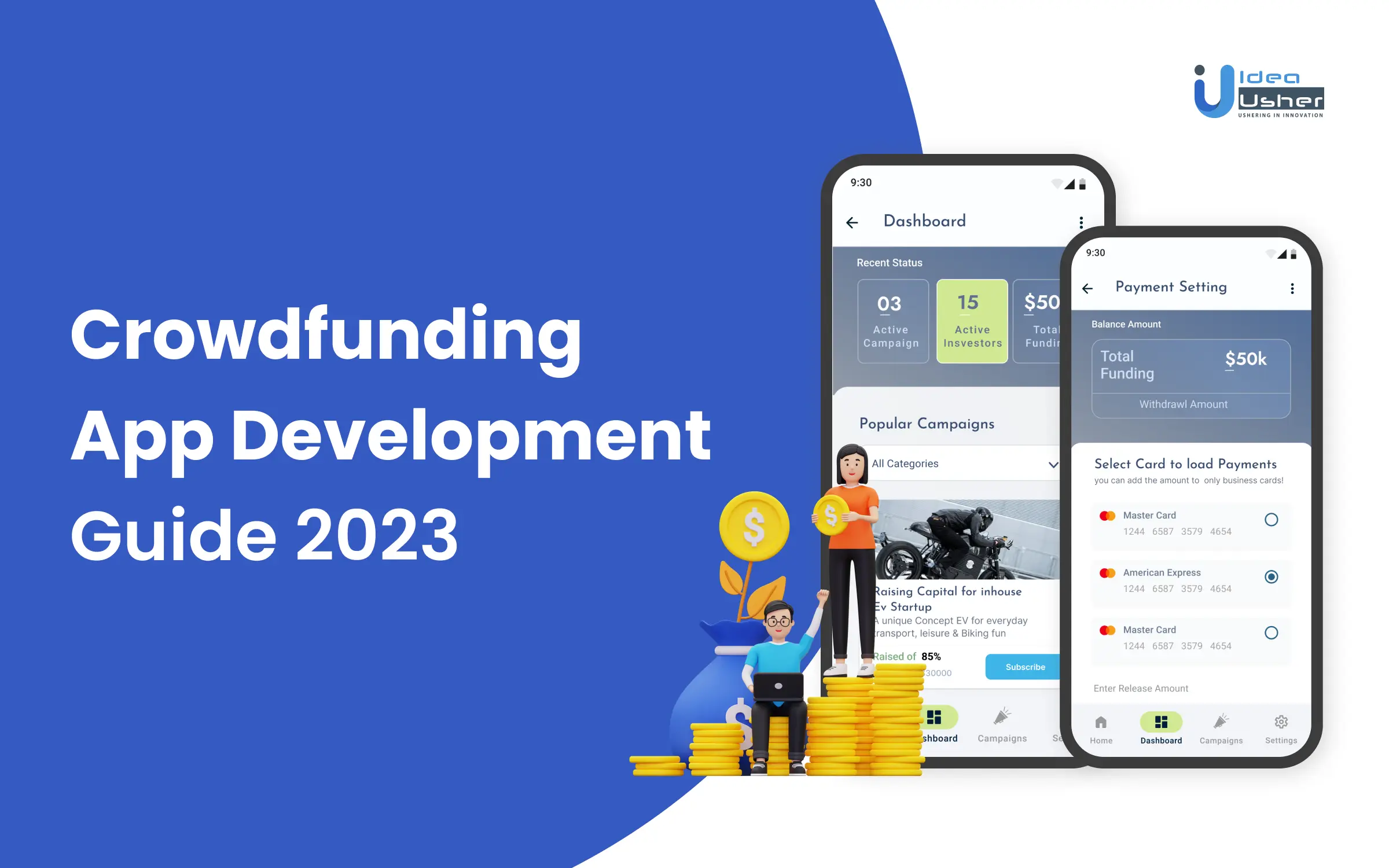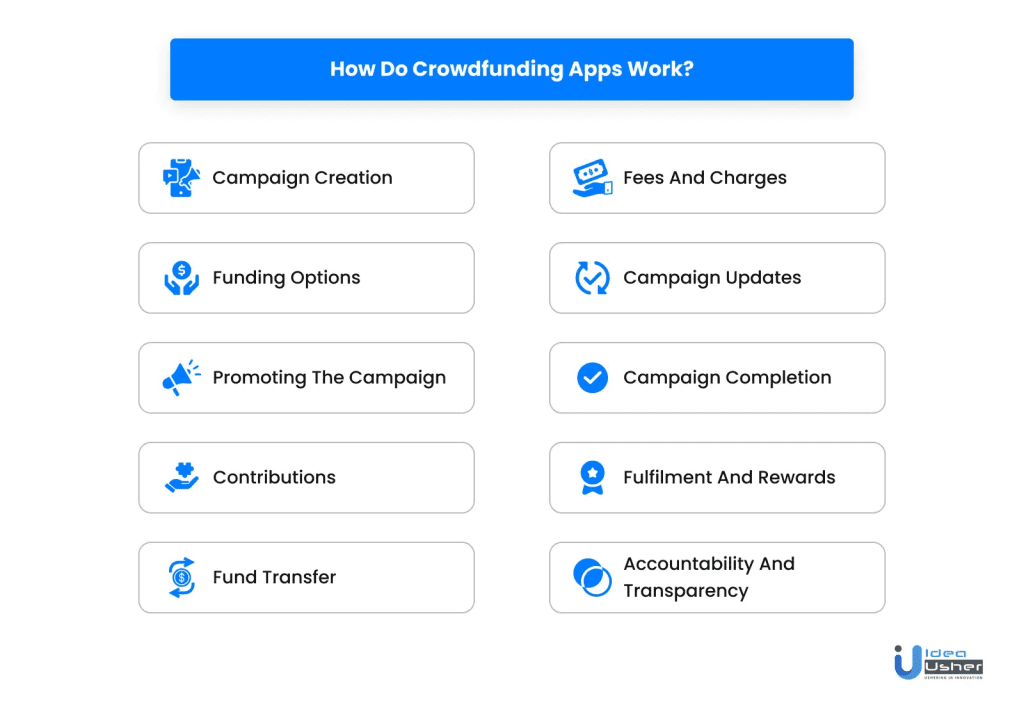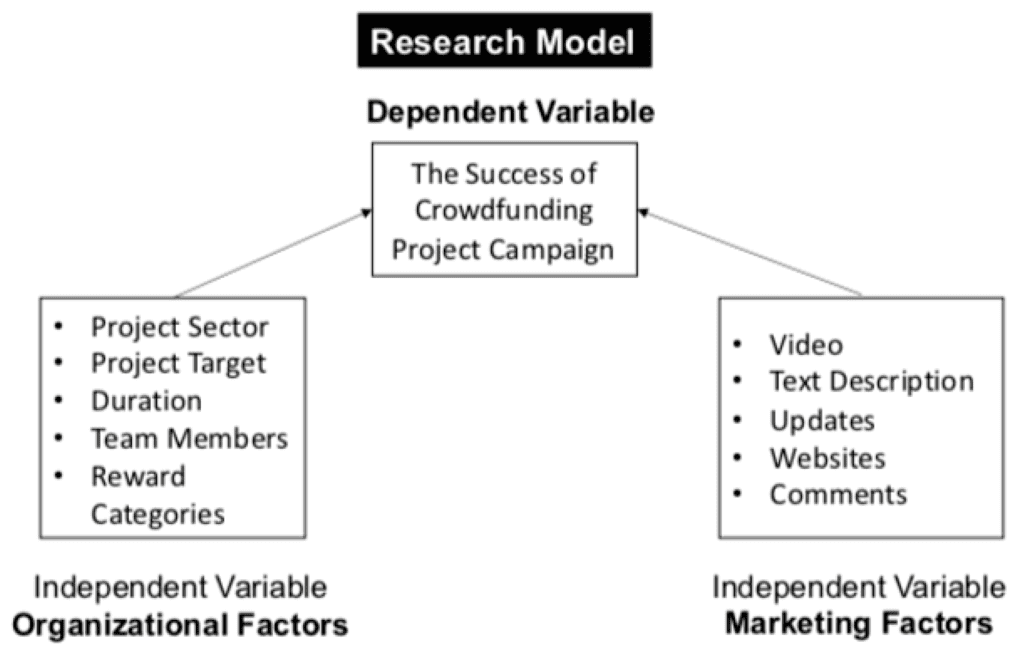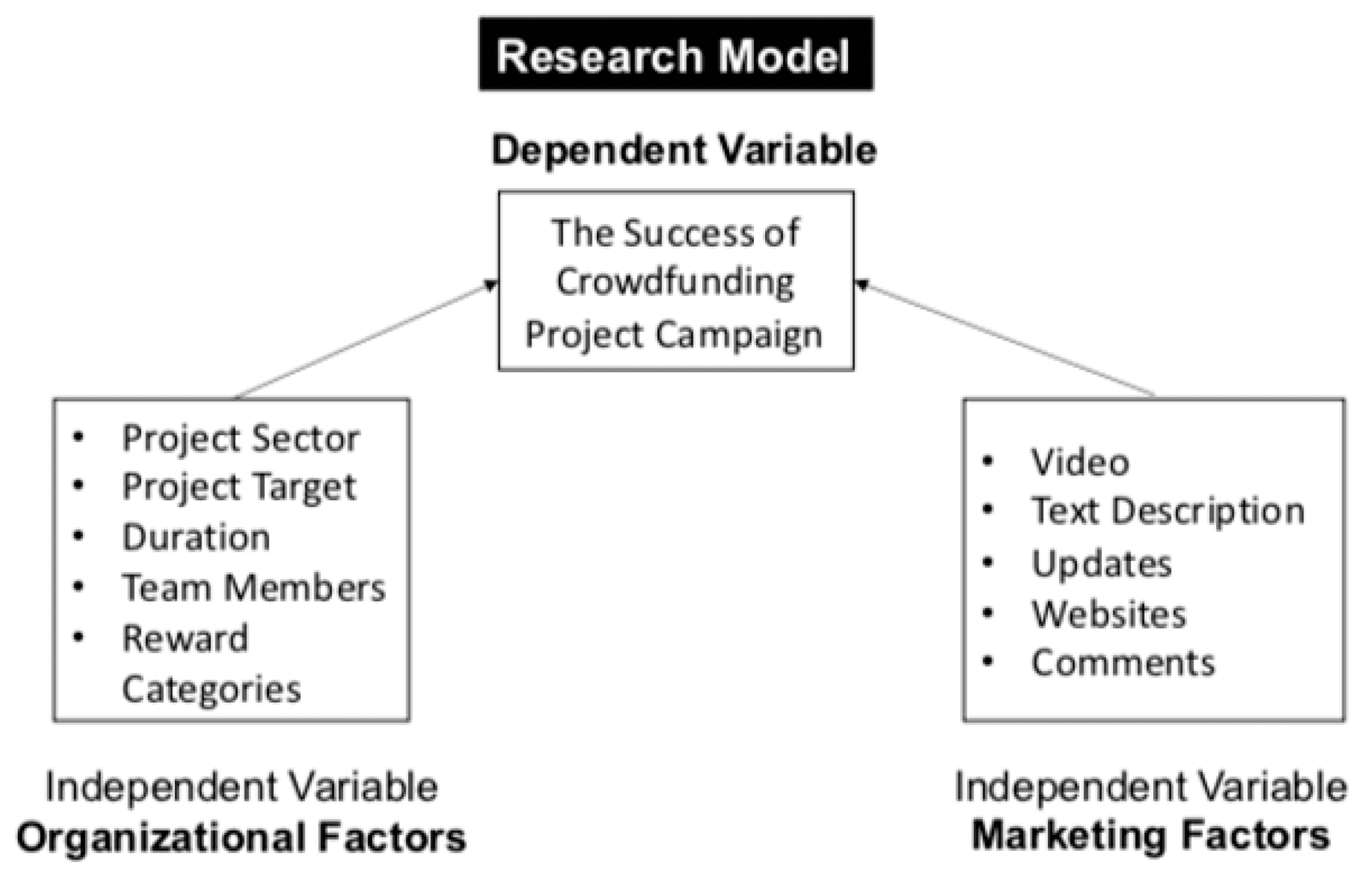Are you an aspiring creator looking to bring your innovative ideas to life through crowdfunding? Look no further, as this article is here to guide you towards success. In this guide, we will explore how the utilization of Artificial Intelligence (AI) can amplify your creativity and help you secure the funding you need for your project. By harnessing the power of AI, you can navigate the world of crowdfunding with ease, attracting backers, and making your creative dreams a reality. Whether you're a musician, inventor, or artist, this article will equip you with the knowledge and tools necessary to flourish in the crowdfunding landscape.

This image is property of ideausher.com.
1. Understanding Crowdfunding
1.1 What is crowdfunding?
Crowdfunding is a method of raising funds for a project, venture, or cause through contributions from a large number of people, typically via the internet. It allows individuals or organizations to reach a wide audience and gather financial support from individuals who believe in their idea. Crowdfunding offers a platform for creators to showcase their work and connect with potential backers who are interested in supporting innovative projects.
1.2 Types of crowdfunding
There are several types of crowdfunding models, each with its own unique characteristics. The most common types include reward-based crowdfunding, donation-based crowdfunding, equity-based crowdfunding, and peer-to-peer lending.
-
Reward-based crowdfunding involves offering rewards or incentives to individuals who contribute to the project. These rewards can range from a personalized thank you note to early access to the product or service being funded.
-
Donation-based crowdfunding focuses on community support and charitable causes. Individuals donate money without expecting any financial return but with the satisfaction of helping a cause they believe in.
-
Equity-based crowdfunding allows individuals to invest in a business or project in exchange for a share of the potential profits. This model is particularly popular for startups or new businesses looking for funding.
-
Peer-to-peer lending involves individuals lending money to others through online platforms. This type of crowdfunding eliminates the need for traditional financial intermediaries such as banks and allows individuals to directly lend to each other.
1.3 Benefits of crowdfunding
Crowdfunding offers several benefits to both project creators and backers. For creators, it provides a platform to showcase their ideas and gain exposure to a wider audience. It also allows them to validate their concept and gauge market interest before launching a product or service. Additionally, crowdfunding can provide entrepreneurs with crucial early-stage funding, enabling them to bring their vision to life.
For backers, crowdfunding provides an opportunity to support projects they feel passionate about. It allows them to become part of a community and engage with creators directly. Backers can also benefit from exclusive rewards and early access to innovative products or services.
1.4 Challenges of crowdfunding
While crowdfunding offers exciting opportunities, it also comes with its own set of challenges. One of the main challenges is the need to stand out among thousands of other projects vying for attention. It can be a crowded marketplace, and creators must have a compelling story and a unique value proposition to capture the interest of potential backers.
Another challenge is setting realistic funding goals and timelines. It's important to strike a balance between setting an ambitious target and ensuring it is achievable. Without proper planning and execution, campaigns may fall short of their goals or over-promise without delivering on expectations.
Lastly, maintaining ongoing engagement with backers throughout the campaign and beyond can be a demanding task. Communication, updates, and any unforeseen setbacks must be effectively managed to maintain the trust and support of backers.
1.5 Importance of creativity in crowdfunding
Creativity plays a crucial role in crowdfunding success. It is essential for project creators to think outside the box and come up with unique and compelling ideas that capture the imagination of potential backers. A creative approach can help differentiate a project from competitors and generate excitement and enthusiasm among the target audience.
Moreover, creativity is vital in crafting engaging and authentic marketing messages. A well-thought-out campaign that tells a compelling story and showcases the creative vision behind the project is more likely to resonate with backers. It is often the creativity of the campaign that sparks the initial interest and convinces individuals to contribute their support.
2. Introduction to AI
2.1 What is AI?
Artificial Intelligence, commonly known as AI, is a branch of computer science that focuses on the development of intelligent machines capable of simulating human intelligence and performing tasks that typically require human intelligence. AI encompasses a wide range of technologies, including machine learning, natural language processing, computer vision, and robotics.
At its core, AI aims to mimic human cognitive abilities, such as reasoning, learning, problem-solving, and perception. By leveraging vast amounts of data and algorithms, AI systems can analyze patterns, make predictions, and automate complex tasks with accuracy and efficiency.
2.2 AI applications in various industries
AI has made significant advancements and has found applications across various industries. In healthcare, AI-powered systems can assist in diagnosing diseases, analyzing medical images, and even predicting patient outcomes. In finance, AI algorithms are used for fraud detection, real-time stock market analysis, and personalized investment recommendations.
Other industries, such as retail, manufacturing, and transportation, also benefit from AI technologies. AI is used for inventory management, supply chain optimization, predictive maintenance, autonomous vehicles, and customer service chatbots, among many other applications. The versatility and potential impact of AI are vast, making it a valuable tool for organizations in different sectors.
2.3 Role of AI in creativity
Traditionally, creativity has been considered a uniquely human trait. However, AI is now being leveraged to enhance and amplify human creativity. AI systems can generate ideas, assist in content creation, and provide valuable insights for creative projects. By analyzing vast amounts of data and identifying patterns, AI algorithms can offer fresh perspectives and novel solutions, opening doors to new possibilities for creators.
AI technologies, such as generative adversarial networks (GANs) and deep learning models, allow for the creation of art, music, and literature that blur the boundaries between human and machine-generated content. By combining human creativity and AI capabilities, creators can explore uncharted territories and unlock untapped potential.
2.4 AI-powered crowdfunding platforms
AI has also found its way into the realm of crowdfunding platforms. These platforms utilize AI algorithms and data analytics to improve campaign success rates, enhance marketing strategies, and provide creators with valuable insights and recommendations.
AI-powered crowdfunding platforms can assist creators in optimizing their campaigns, targeting the right audience, and increasing overall engagement and conversion rates. By leveraging AI, these platforms can harness the power of data to guide creators towards more effective strategies and ultimately increase the chances of crowdfunding success.

This image is property of stability-images-upload.s3.amazonaws.com.
3. Enhancing Creativity with AI
3.1 AI-generated ideas and inspiration
One of the exciting applications of AI in creativity is the generation of ideas and inspiration. AI algorithms can analyze vast amounts of data, including existing creative works, market trends, and user preferences, to identify patterns and generate new ideas. This can be particularly useful for creators looking to break free from traditional molds and explore innovative concepts.
AI-generated ideas can serve as a starting point and source of inspiration for creators. By incorporating AI-generated concepts into their creative process, creators can push boundaries, experiment with new approaches, and potentially unlock novel solutions that may not have been apparent otherwise.
3.2 AI-assisted content creation
AI can significantly assist in content creation across various mediums, including writing, design, and music. Natural language processing algorithms can be used to analyze large amounts of text and generate written content that aligns with specific styles and tones. This can be particularly useful for creators who may need assistance with copywriting, blog posts, or social media content.
In design, AI-powered tools can automate repetitive tasks, such as formatting, image or video editing, and layout adjustments. These tools allow creators to focus more on the creative aspects, freeing up time that can be spent on ideation and refining their vision.
In music, AI algorithms can compose melodies or generate musical accompaniments. This can be valuable for musicians, composers, and producers seeking inspiration or looking to experiment with different musical styles.
3.3 AI-driven market research
Market research is a critical aspect of any crowdfunding campaign. AI can provide valuable insights and help creators understand their target audience better. By analyzing past campaign data, social media trends, and user behavior, AI algorithms can identify key demographic segments, preferences, and behavioral patterns.
This information can guide creators in tailoring their campaign messaging, identifying the most effective marketing channels, and optimizing their strategies to appeal to their target audience effectively. AI-driven market research can provide creators with a competitive advantage and increase their chances of connecting with the right backers.
3.4 Personalized recommendations and audience targeting
AI algorithms can analyze user data and generate personalized recommendations based on individual preferences, interests, and past interactions. In the context of crowdfunding, this can be invaluable for creators looking to target potential backers with tailored messages and offers.
By utilizing AI-powered recommendation systems, creators can identify individuals who are likely to be interested in their project and deliver tailored content to maximize engagement. This level of personalization can increase the likelihood of converting potential backers into actual supporters and contributors.
Personalized recommendations can also extend beyond the campaign stage, providing creators with insights on how to best engage with backers post-campaign and establish long-lasting relationships.
4. Leveraging AI for Campaign Planning
4.1 Campaign goal setting with AI
One of the challenges creators face when planning a crowdfunding campaign is setting realistic funding goals. AI can provide creators with data-driven insights and recommendations to help set achievable targets. By analyzing similar projects, market trends, and user behavior, AI algorithms can estimate the optimal funding goal based on various factors.
AI-powered tools can also provide creators with predictions on potential funding trajectories, taking into account factors such as campaign duration, engagement levels, and funding patterns.
Taking advantage of AI in campaign goal setting can help creators strike the right balance between ambition and achievability, increasing the chances of a successful campaign.
4.2 Optimizing campaign timelines
Campaign duration plays a crucial role in crowdfunding success. Too short of a campaign may not provide enough time for a project to gain traction, while an overly extended campaign may lead to campaign fatigue and decreased engagement.
AI algorithms can analyze historical campaign data, market trends, and user behavior to recommend optimal campaign durations. By considering factors such as funding patterns, backer engagement, and campaign momentum, AI-powered tools can guide creators in setting appropriate timelines for their campaigns.
Optimizing campaign timelines can help creators maintain momentum, capitalize on initial interest, and provide ample opportunity for engagement and conversion.
4.3 AI-based competitor analysis
Understanding the competitive landscape is essential for any crowdfunding campaign. AI can assist creators in analyzing and tracking their competitors' campaigns, strategies, and success rates. By leveraging AI-powered tools, creators can gain insights into competitor performance, funding trajectories, and audience engagement.
AI algorithms can identify patterns, uncover best practices, and highlight potential gaps or opportunities. This information can guide creators in refining their own strategies, differentiating their projects, and ultimately increasing their chances of success.
4.4 Predictive analytics for campaign success
Predictive analytics, enabled by AI algorithms, can provide creators with data-driven predictions on campaign success. By analyzing historical campaign data, market trends, and user behavior, AI-powered tools can estimate the likelihood of reaching specific funding milestones or overall campaign success.
This insight can be invaluable for creators when making strategic decisions, such as adjusting marketing tactics, refining rewards, or reallocating resources. Predictive analytics allows creators to make informed choices and optimize their campaigns based on data-backed predictions.

This image is property of ideausher.com.
5. AI for Crowdfunding Promotion
5.1 AI-powered social media marketing
Social media platforms play a significant role in promoting crowdfunding campaigns. AI algorithms can analyze user data, engagement patterns, and campaign performance metrics to optimize social media marketing efforts. AI-powered tools can recommend the most effective platforms, target specific audiences, and suggest appropriate content formats.
Moreover, AI algorithms can automate social media posting and scheduling to ensure consistent and targeted messaging. By leveraging AI for social media marketing, creators can maximize their reach, increase engagement, and drive traffic to their campaign page.
5.2 Targeting influencers with AI
Influencers can be powerful allies for creators looking to promote their crowdfunding campaigns. AI-powered tools can identify relevant influencers based on their reach, engagement rates, and audience demographics.
By utilizing AI algorithms, creators can find influencers who align with their project's values, target audience, and industry. This ensures that the collaboration is authentic and has the potential to reach the right backers. AI can also provide insights into the most effective influencer strategies and metrics for measuring the impact of influencer partnerships.
5.3 Automated email campaigns
Email marketing is a key component of crowdfunding promotion. AI algorithms can assist creators in creating personalized and automated email campaigns. By analyzing user data, campaign engagement, and user preferences, AI-powered tools can suggest personalized email content, timing, and targeting strategies.
Automated email campaigns enable creators to nurture relationships with potential backers, provide updates on campaign progress, and deliver exclusive content or offers. AI-powered tools can optimize open rates, click-through rates, and overall email campaign performance, increasing the chances of conversion.
5.4 AI-driven ad targeting
Paid advertising can be an effective way to reach a broader audience and generate traffic to a crowdfunding campaign page. AI algorithms can analyze vast amounts of user data, campaign metrics, and ad performance to optimize ad targeting and ensure maximum return on investment (ROI).
By utilizing AI-driven ad targeting, creators can identify the most suitable platforms, audience segments, and ad formats for their campaigns. AI algorithms can continually monitor and adjust ad campaigns based on real-time performance data, ensuring efficient use of advertising budgets and increasing the likelihood of campaign success.
6. AI-based Audience Engagement
6.1 Chatbots for customer support
Engaging with backers and maintaining effective customer support throughout a crowdfunding campaign can be challenging, especially as the number of backers grows. AI-powered chatbots can assist creators in addressing common questions, providing updates, and delivering personalized responses.
Chatbots can be programmed with predefined answers and responses based on frequently asked questions and campaign information. This helps creators save time and provide timely and consistent support to backers. AI-powered chatbots can also learn and improve over time, becoming more efficient and accurate in their interactions.
6.2 Interactive AI-powered experiences
Interactive experiences can significantly enhance audience engagement during a crowdfunding campaign. AI-powered tools can create interactive content, such as quizzes, polls, or games, to encourage participation and capture user interest.
By utilizing AI-driven interactive experiences, creators can foster a sense of community, gather valuable feedback, and generate excitement around their projects. These experiences can contribute to increased backer engagement and higher conversion rates.
6.3 Personalized backer communication
Maintaining personalized communication with backers is crucial for building and nurturing relationships. AI algorithms can analyze user preferences, campaign engagement, and demographic information to provide creators with insights into personalized communication strategies.
AI-powered tools can automate personalized email updates, exclusive content delivery, and targeted messaging based on individual backer profiles. This level of personalization helps creators strengthen their connection with backers, increase loyalty, and create a memorable crowdfunding experience.
6.4 AI-driven feedback and sentiment analysis
Understanding backer sentiment and gathering feedback are essential for campaign success and continuous improvement. AI algorithms can analyze backer comments, social media interactions, and user reviews to provide creators with sentiment analysis and feedback insights.
By utilizing AI-driven sentiment analysis, creators can identify areas of improvement, address backer concerns, and adapt their messaging and strategies accordingly. This data-driven feedback loop can help creators refine their projects and ensure they meet the expectations and desires of their backers.

This image is property of techbullion.com.
7. Managing Crowdfunding Data with AI
7.1 Data collection and organization
Crowdfunding campaigns generate substantial amounts of data, including backer information, funding metrics, and engagement data. Managing and organizing this data can be a daunting task. AI-powered tools can automate data collection and streamline the organization process, making it easier for creators to access and analyze vital campaign data.
By utilizing AI for data collection and organization, creators can efficiently track campaign progress, identify trends, and gain insights into their campaign's performance. This information can guide strategic decisions and enable creators to make data-driven adjustments throughout the campaign.
7.2 AI-fueled data analysis
Data analysis is essential for extracting meaningful insights from vast amounts of crowdfunding data. AI algorithms can analyze campaign data, including backer behavior, funding patterns, and engagement metrics, to identify trends, patterns, and areas of improvement.
By leveraging AI-powered data analysis, creators can identify key campaign success factors, measure the impact of marketing efforts, and refine strategies for future campaigns. Data analysis helps creators make informed decisions and increase the likelihood of crowdfunding success.
7.3 Tracking campaign performance
AI-powered tools can provide real-time tracking and monitoring of campaign performance. With access to metrics such as funding progress, backer engagement, and social media reach, creators can stay informed and adjust their strategies accordingly.
Tracking campaign performance allows creators to identify areas of success and areas that may require improvement. By continually monitoring campaign performance, creators can take proactive measures to ensure their campaigns stay on track and maximize their chances of reaching their funding goals.
7.4 Using data for future campaigns
Data collected during a crowdfunding campaign can be invaluable for future endeavors. AI algorithms can analyze historical campaign data, audience insights, and engagement metrics to provide creators with actionable recommendations for future campaigns.
By employing AI-driven data insights, creators can refine their strategies, target specific audience segments, and optimize their campaigns to increase the chances of success in subsequent crowdfunding ventures. Leveraging data from previous campaigns helps creators build upon their past successes and learn from their experiences.
8. AI and Risk Mitigation
8.1 Fraud detection and prevention
Fraud is a concern for both creators and backers in the crowdfunding space. AI algorithms can assist in fraud detection and prevention by analyzing backer behavior, funding patterns, and payment information.
By using AI-powered tools, creators can identify suspicious activities, such as fake accounts or multiple contributions from the same source, and take appropriate measures to mitigate the risk of fraud. Backers can also benefit from AI-based fraud detection, ensuring a safer and more secure crowdfunding environment.
8.2 AI-based risk assessment
AI algorithms can assess project and campaign risks by analyzing various factors, such as market demand, project viability, and past campaign performance. By leveraging AI-powered risk assessment, creators can identify potential challenges and mitigate risks early on.
AI-based risk assessment can help creators make informed decisions and determine if a project is ready for crowdfunding. By analyzing extensive datasets and patterns, AI algorithms can provide valuable insights into potential obstacles or pitfalls, allowing creators to better prepare and increase the likelihood of a successful campaign.
8.3 Monitoring campaign credibility
Credibility is vital in the crowdfunding space, as it ensures backers have confidence in the creators and their projects. AI algorithms can analyze various factors, such as creator reputation, project authenticity, and supporting evidence, to evaluate campaign credibility.
By leveraging AI-powered tools, backers can make more informed decisions when selecting projects to support, and creators can take steps to build and maintain credibility throughout their campaigns. AI-based credibility monitoring can help maintain trust between creators and backers, ensuring a positive crowdfunding experience for all parties involved.
8.4 Ensuring campaign transparency
Transparency is integral to successful crowdfunding campaigns. AI-powered tools can assist creators in providing transparent and accurate information to backers throughout the campaign.
By utilizing AI for campaign transparency, creators can easily provide updates, progress reports, and financial information in a clear and accessible manner. AI algorithms can also automate the verification of project information, ensuring the integrity and accuracy of campaign details.

This image is property of www.mdpi.com.
9. Ethical Considerations of AI in Crowdfunding
9.1 Addressing bias in AI algorithms
AI algorithms are only as unbiased as the data they are trained on. It is essential to address and mitigate any biases that may negatively impact crowdfunding campaigns. Biases in data can lead to unfair targeting, discriminatory outcomes, and limited inclusivity.
Creators and platform operators must prioritize diversity and inclusivity when training AI algorithms to ensure fair and equitable campaign promotion. Regular audits and evaluations of AI algorithms are necessary to identify and address any biases that may have inadvertently been introduced.
9.2 Maintaining user privacy
Privacy is a significant concern in any online platform, including crowdfunding platforms utilizing AI. Collecting and analyzing user data must comply with privacy regulations and respect users' rights.
Creators and platform operators should implement robust privacy protocols, including secure data storage and encryption to protect user information. Transparency about data collection, usage, and sharing practices is critical to maintain trust and ensure ethical AI practices in crowdfunding.
9.3 Ensuring fairness and inclusivity
AI algorithms must be designed and trained in a way that promotes fairness and inclusivity in crowdfunding. It is crucial to avoid biases that disadvantage certain demographic groups or perpetuate existing societal inequalities.
Creators and platform operators should actively test and refine AI algorithms to ensure equal opportunities for all projects and avoid automated discrimination. Regular assessments of AI systems can help identify and rectify any unintended biases or discriminatory outcomes.
9.4 Human oversight and accountability
While AI can provide valuable insights and automation, human oversight and accountability are essential in the crowdfunding space. Creators and platform operators should actively monitor and understand the decisions made by AI algorithms to ensure ethical practices.
Human intervention and decision-making should be incorporated into AI-powered processes, especially in critical areas such as fraud detection, risk assessment, and campaign monitoring. Clear guidelines and protocols should be established to provide accountability and responsibility for AI-powered actions.
10. Case Studies: AI Success Stories in Crowdfunding
10.1 Project A: Utilizing AI-driven marketing
Project A, a tech startup, successfully utilized AI-driven marketing strategies to boost their crowdfunding campaign. By leveraging AI-powered tools to analyze market data, competitor campaigns, and audience preferences, they developed targeted marketing campaigns that resonated with their target audience.
Through AI-powered ad targeting and social media optimization, Project A was able to increase their campaign's reach and engagement. The personalized recommendations provided by AI algorithms helped them connect with potential backers who were most likely to support their project. As a result, Project A successfully surpassed their funding goal and received widespread recognition for their innovative product.
10.2 Project B: AI-powered campaign optimization
Project B, a fashion brand, implemented AI-powered campaign optimization techniques to improve their crowdfunding success. By utilizing AI-based data analysis, they identified areas of their campaign that required improvement, such as reward structure and advertising channels.
By analyzing backer engagement data, AI algorithms helped Project B refine their campaign messaging and reward offerings. The AI-powered tools also provided recommendations for content creation, helping them create compelling visuals and stories that resonated with their target audience.
The campaign optimization efforts resulted in an increase in backer engagement, higher conversion rates, and ultimately, exceeding the project's funding goal. Project B's AI-driven approach allowed them to gain valuable insights into their campaign and make data-backed decisions that contributed to their crowdfunding success.
10.3 Project C: AI-backed audience engagement
Project C, a gaming startup, leveraged AI to enhance audience engagement during their crowdfunding campaign. By using AI-powered chatbots and interactive experiences, they created an immersive and personalized crowdfunding experience for their backers.
The AI-powered chatbots addressed frequently asked questions, provided updates, and engaged with backers. Interactive AI-powered experiences, such as game demos and virtual reality showcases, allowed potential backers to experience the product firsthand.
By incorporating AI in their audience engagement strategies, Project C was able to foster a strong sense of community and excitement around their project. Backer feedback was overwhelmingly positive, resulting in increased campaign engagement, higher levels of support, and ultimately, a successful crowdfunding campaign.
Conclusion
Utilizing AI in crowdfunding can amplify creativity and enhance the overall success of campaigns. From generating ideas and assisting with content creation to optimizing marketing efforts and managing data, AI-powered tools offer valuable insights and automation that can benefit creators and backers alike. However, ethical considerations, such as addressing biases, ensuring privacy, and maintaining transparency, are crucial to ensure fair and inclusive crowdfunding practices. By incorporating AI in a thoughtful and responsible manner, creators can unlock the full potential of crowdfunding and bring their innovative projects to life.





